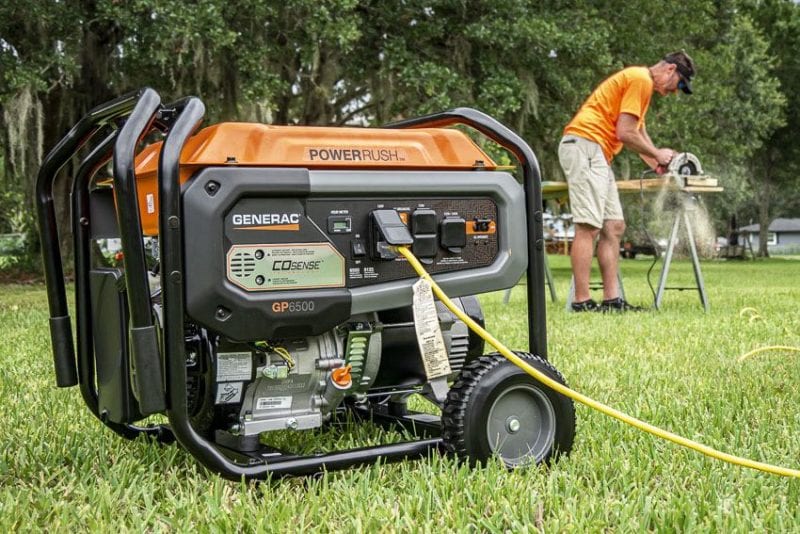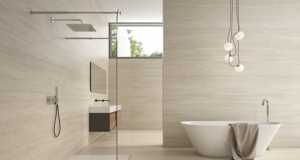

Generators are a great way to ensure that your home has power during power outages or other emergencies. However, with so many different types of generators available, it can be difficult to know which one is the best for your needs.
In this blog, we will explore the different types of generators available for home use, including portable generators, standby generators, and inverter generators, and help you determine which one is the best fit for your home.
Inverter Generator
An inverter generator is a type of portable generator that uses advanced technology to convert DC power to AC power. This allows the generator to produce a stable and consistent flow of electricity, which is ideal for powering sensitive electronics such as laptops, smartphones, and other devices.
Inverter generators are also known for being quieter and more fuel-efficient than traditional portable generators. They are popular among outdoor enthusiasts, RVers, and for use as backup power in homes. They also come in a variety of sizes, making them a versatile option for different types of needs and usage scenarios.
Power to the Party People: The Inverter Generator of Your Dreams Found at Consumarates
Pros:
-
Inverter generators can be up to 30% more fuel-efficient than traditional portable generators, which means less fuel consumption and longer run times.
-
Inverter generators produce a stable and consistent flow of electricity, which is ideal for powering sensitive electronics such as laptops, smartphones, and other devices.
-
Inverter generators are known for being much quieter than traditional portable generators, making them ideal for use in noise-sensitive areas such as campsites, parks, and residential neighborhoods.
-
Inverter generators are designed to be portable and lightweight, making them easy to take with you on camping trips, RV trips, and other outdoor activities.
Cons:
-
Inverter generators tend to be more expensive than traditional portable generators.
-
Inverter generators are more complex than traditional portable generators, which may make them more difficult to repair or maintain.
-
Due to the high efficiency and low fuel consumption, inverter generator’s runtime may be limited compared to traditional generators.
Dual Fuel Generator
A dual fuel generator is a type of generator that can run on either gasoline or propane. These generators typically have a switch or valve that allows the user to choose the fuel source.
The benefit of a dual fuel generator is that it can provide a backup power source in case one fuel is unavailable or becomes too expensive. They are also generally more efficient as they can switch between fuel types as per the requirement.
Pros:
-
The ability to switch between fuel sources provides more options for powering your equipment or home in an emergency.
-
Propane is often less expensive than gasoline, so using a dual fuel generator can save you money in the long run.
-
Some dual fuel generators are designed to automatically switch to the most efficient fuel source, which can save fuel and money.
-
Due to the ability to switch to propane, which is stored in a tank, the generator can run for a longer period of time without needing to be refueled.
Cons:
-
Dual fuel generators are more complex than traditional gasoline-only generators, which can make them more difficult to operate and maintain.
-
Dual fuel generators are typically more expensive than traditional generators.
-
Dual fuel generators are not as widely available as traditional generators, so they may be harder to find and purchase.
-
Dual fuel generators can be larger and heavier than traditional generators, which can make them more difficult to transport.
Super Quiet Generator
A quiet generator refers to a generator that produces minimal noise while in operation. This can be achieved through a variety of design features, such as enclosing the generator in a soundproof housing or using quieter components. Generators used in residential or commercial settings may be specifically designed to be quiet in order to minimize disturbance to nearby residents or customers.
Discover the Top Quietl Generator (upto 59 dB): A Comprehensive Guide from Comsumarates
Standby generator
A standby generator is a type of backup generator that is connected to a building’s electrical system and automatically turns on in the event of a power outage.
These generators are typically powered by natural gas or propane and are designed to supply electricity to the entire building or a selected portion of it. Standby generators are often used in critical infrastructure such as hospitals, data centers, and emergency services.
They can also be used in residential settings to provide power during outages. Standby generators are generally larger and more powerful than portable generators, and are intended to provide power for an extended period of time.
Battery Power Generator
A battery-powered home generator is a type of backup power system that uses stored energy from batteries to supply electricity during a power outage. These generators are typically smaller and more portable than traditional standby generators, which are fueled by natural gas or propane.
A battery-powered home generator typically includes an inverter, which converts the direct current (DC) power stored in the batteries to alternating current (AC) power that can be used to power household appliances. The batteries are charged by solar panels or when utility power is available.
These generators are designed to provide power for a limited amount of time, typically a few hours to a full day, depending on the size of the battery bank and the power demand of the connected devices.
The advantage of these generators is that they are quiet, emission-free and easy to install and maintain. They are suitable for small-scale uses such as powering lights, a refrigerator, and charging electronic devices.


